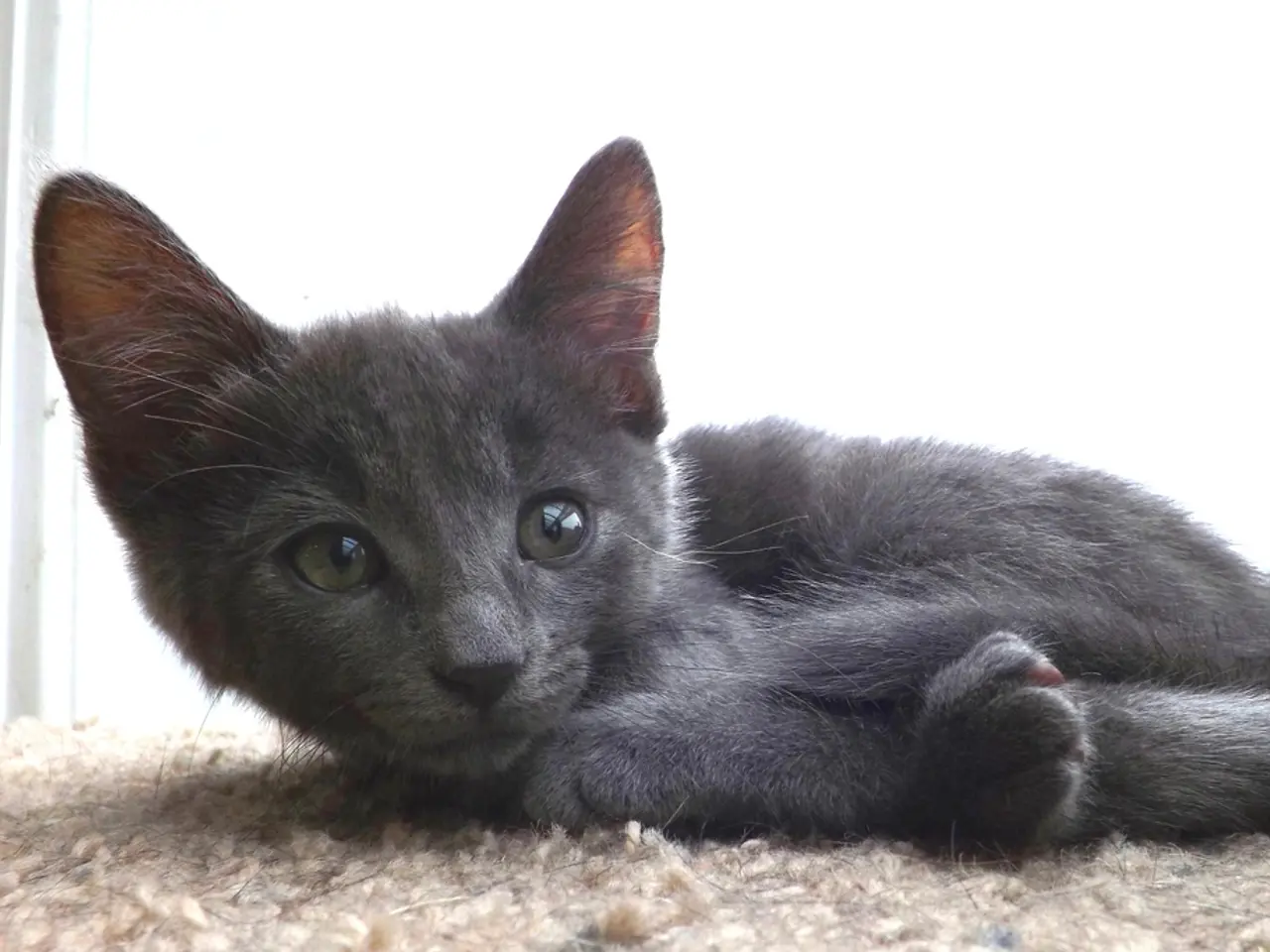First-Time Kitten Visit to the Vet: Essential Preparations and Inquiries
Welcome to your new feline family member! Preparing for your kitten's first vet visit is an essential step in ensuring a healthy start for your furry friend. Here's a comprehensive guide to help you navigate this important milestone.
Preparing for the Visit
Before the first vet visit, it's crucial to help the kitten feel safe and comfortable in their carrier. Make it an inviting place with a comfy blanket, treats, and familiar scents.
Finding the right vet for your kitten can be a daunting task. Word-of-mouth referrals and tools like Vet Finder can be helpful in finding a vet who suits your feline companion perfectly.
Scheduling the visit as soon as possible after adoption is ideal to establish a health baseline. Bring any existing medical or vaccination records from shelters or breeders to streamline the vet's assessment. Prepare a list of questions about nutrition, behaviour, litter training, and preventive care to discuss during the visit.
Preparing to discuss parasite control is also essential, as the vet will check for parasites and recommend deworming or flea and tick prevention starting early on.
Safety during transportation is implicitly suggested. Arrange it in a way that keeps the kitten calm and secure during the visit.
The First Vet Exam
During the first vet exam, the veterinarian will conduct a full physical health check, including eyes, ears, teeth, heart, lungs, joints, and abdomen. They will check the kitten’s weight and temperature, screen for parasites or infections, and do a full nose-to-tail exam to ensure the kitten's health.
Establishing a relationship with the vet early helps ensure ongoing wellness checks that monitor growth and catch potential health issues early.
If the kitten isn't already spayed or neutered, the vet will talk about the benefits of the procedure and the options available. The kitten may receive deworming medication to clear out intestinal parasites and eggs.
If the kitten is over 9 weeks old, the vet may recommend a blood test to check for FeLV (feline leukemia virus) and FIV (feline immunodeficiency virus). If needed, the kitten can be microchipped at this time to improve their chances of being returned if they get lost.
The Cost and Duration of the Visit
The cost of a first vet visit for a kitten can vary depending on the region of the country, but the average cost typically ranges from $75 to $350 per visit if deworming, vaccination, parasite prevention, and microchipping are performed.
Most kitten vet appointments last between 30 to 60 minutes and include getting to know the kitten, physical exam, vaccinations, deworming, and discussing preventative care.
Adopting a Kitten
If you're adopting a kitten from a shelter, independent adoption, or taking in a stray kitten, it's recommended to schedule a first vet appointment within 48-72 hours. It's also a great opportunity to get acquainted with the vet and discuss any specific concerns you may have about your new feline friend.
In conclusion, timely vet visits combined with proper preparation help provide a healthy start and smooth integration of the kitten into its new home environment.
The comprehensive guide for your kitten's first vet visit includes finding a vet who suits your feline companion perfectly and scheduling the visit as soon as possible after adoption to ensure a healthy start.
To help your kitten feel safe during the visit, make their carrier an inviting place with a comfy blanket, treats, and familiar scents. Additionally, discuss parasite control with the vet and arrange for transportation in a way that keeps the kitten calm and secure during the visit.




